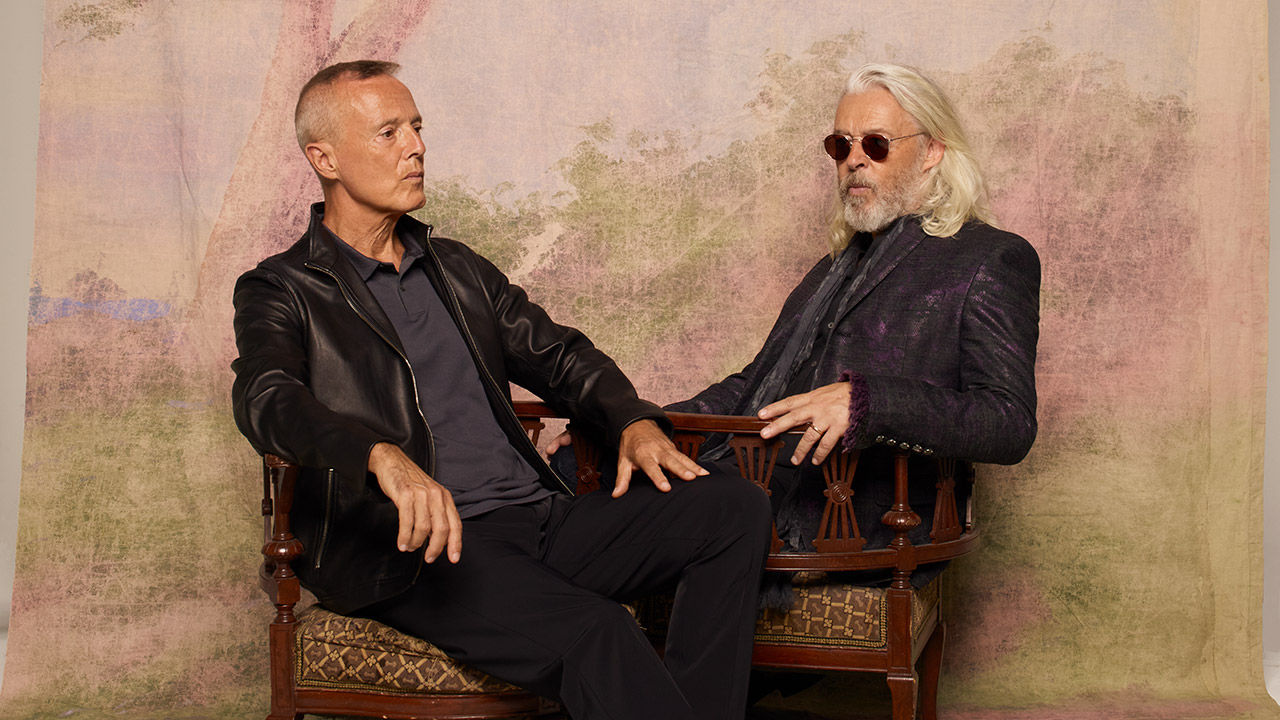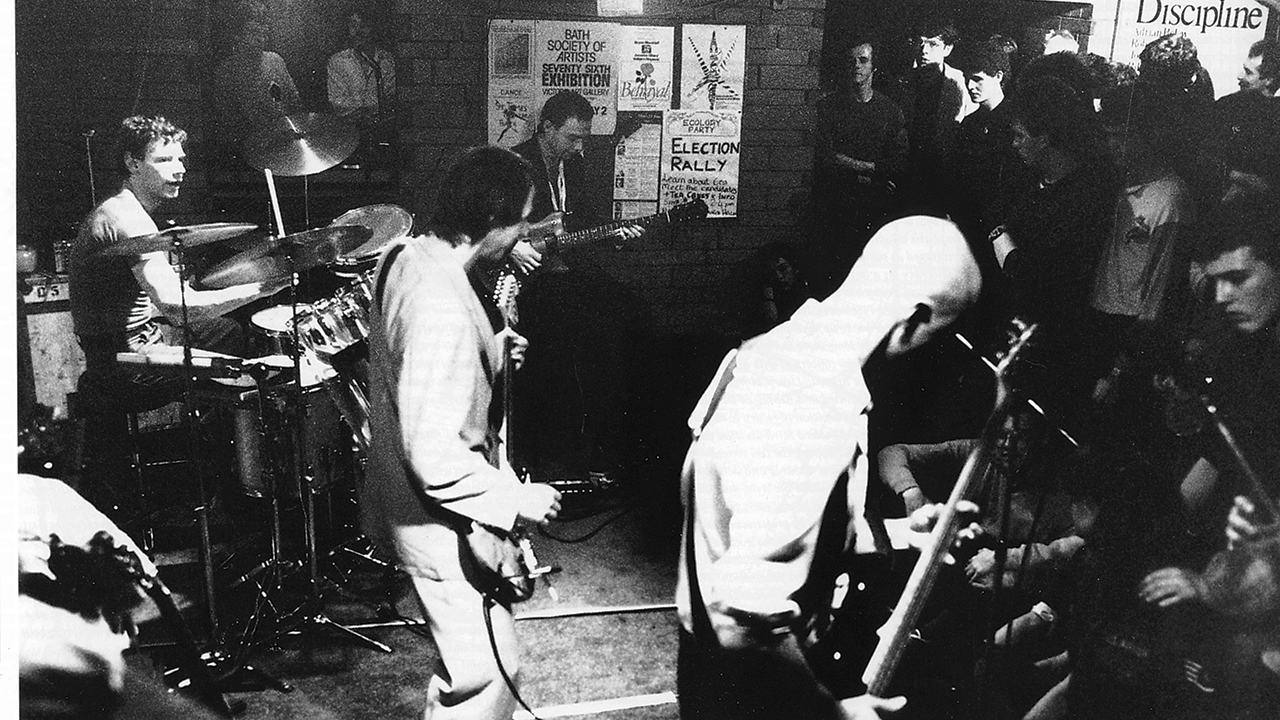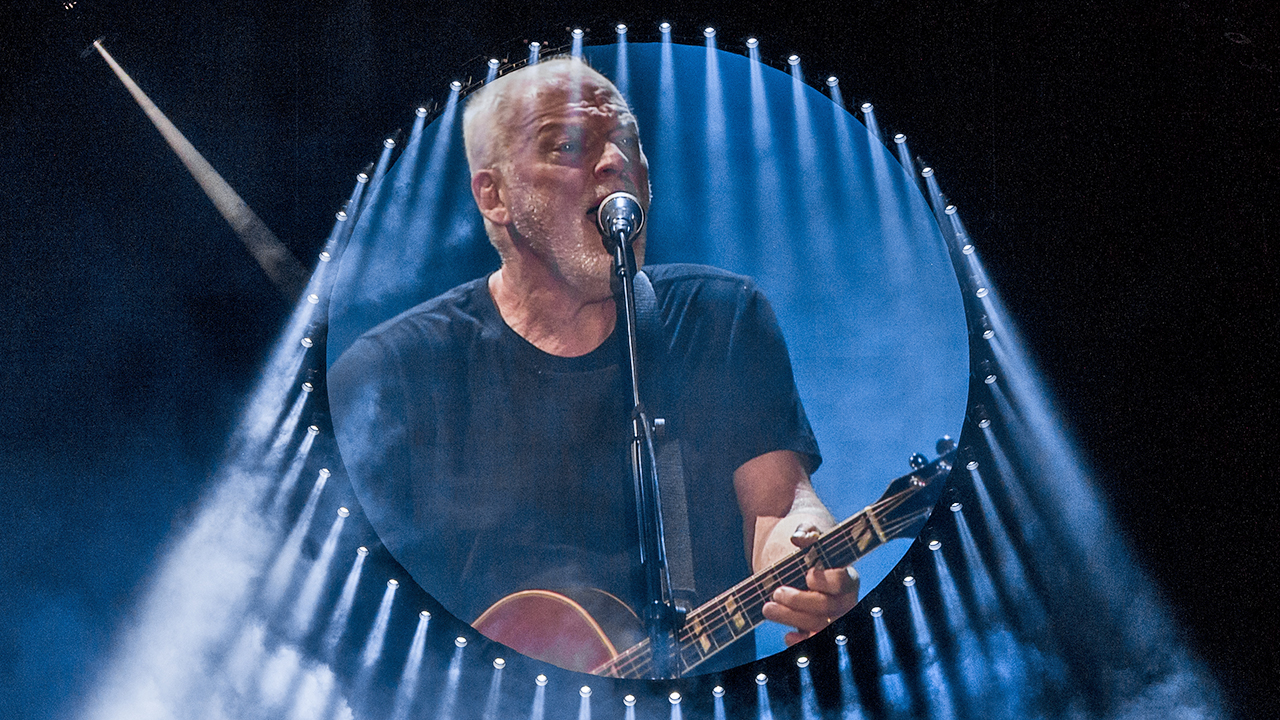“We were trying to get to that level of the music we really loved… It’s always slightly out of reach, but my God, you can have fun trying to get there”: Tears For Fears on their mystical purpose
A King Crimson show in 1981 kickstarted the duo’s partnership, powered by all kinds of prog and never completely destroyed by their battles

Select the newsletters you’d like to receive. Then, add your email to sign up.
You are now subscribed
Your newsletter sign-up was successful
Want to add more newsletters?

Every Friday
Louder
Louder’s weekly newsletter is jam-packed with the team’s personal highlights from the last seven days, including features, breaking news, reviews and tons of juicy exclusives from the world of alternative music.

Every Friday
Classic Rock
The Classic Rock newsletter is an essential read for the discerning rock fan. Every week we bring you the news, reviews and the very best features and interviews from our extensive archive. Written by rock fans for rock fans.

Every Friday
Metal Hammer
For the last four decades Metal Hammer has been the world’s greatest metal magazine. Created by metalheads for metalheads, ‘Hammer takes you behind the scenes, closer to the action, and nearer to the bands that you love the most.

Every Friday
Prog
The Prog newsletter brings you the very best of Prog Magazine and our website, every Friday. We'll deliver you the very latest news from the Prog universe, informative features and archive material from Prog’s impressive vault.
Once darlings of the 80s pop scene but always powered by prog, Tears For Fears made a bold return with 2022’s The Tipping Point, their first new album in 18 years. At the time of its launch, Roland Orzabal and Curt Smith told Prog about the ambition that kept them going – and how their difficult reunion led to a rediscovery.
Curt Smith has a framed picture of King Crimson on his bathroom wall. It’s not just any old photo. The occasion is April 30, 1981, in the confines of Bath’s Moles club, where a fresh iteration of the band – tentatively called Discipline – is returning to the stage for the first time in seven years. Bassist Tony Levin dominates the foreground, while the 19-year-old Smith stands directly in front of him, utterly transfixed.
“A friend of mine got Tony Levin to send that picture to me,” explains Smith, who
went on to form Tears For Fears with Roland Orzabal later in ’81. “Apparently, Tony used to have this side-stage camera that he’d take pictures with during a gig, using a footswitch. So it’s taken from slightly behind him, with me watching him play a Chapman stick. In the picture I’m like, ‘What is that?’”
To the uninitiated, it may come as a surprise to discover that Tears For Fears are big prog fans. After all, they became synonymous with the new breed of British synthpop with 1983 debut, The Hurting, before conquering the rest of the 80s with platinum-selling monsters Songs From The Big Chair and The Seeds Of Love. But there was always something much deeper going on.
The Hurting was a concept album about childhood dysfunction and trauma, with allusions to Arthur Janov’s primal scream therapy – dark themes cloaked in mainstream pop. The title track was an inventive mini-suite, while songs like Memories Fade boasted the forceful complexity of the best prog. Even King Crimson veteran Mel Collins popped up on sax.
And while 1985’s Songs From The Big Chair yielded the mega-hits Shout and Everybody Wants To Rule The World, its sense of ambition was far more attuned to the world of prog. There’s a clear Crimson feel to the knotty precision of Broken; the fragile I Believe betrays the influence of Robert Wyatt (to whom it’s dedicated); and Listen is nearly seven minutes of gorgeous futurist abstraction.
By the time they returned with The Seeds Of Love in 1989, Tears For Fears had assimilated prog, pop, jazz and post-psychedelia into a richly organic vision, the questing spirit of late-60s rock dressed in late-80s luxuriance. Even the guests – Phil Collins, Simon Clark, Jon Hassell and Simon Phillips among them – had serious prog credentials.
Sign up below to get the latest from Prog, plus exclusive special offers, direct to your inbox!

“We’ve always been drawn to a certain kind of music,” says Orzabal. “Complicated music, if you like; whether it’s My Life In The Bush Of Ghosts by David Byrne and Brian Eno, Peter Gabriel 3 [aka Melt], or whatever. In the days when everyone would go to school with the name of a band on their rucksacks, mine was Uriah Heep. I was absolutely obsessed with them. And then Foxtrot and Genesis Live. And Led Zeppelin’s Houses Of The Holy.”
“I was always more of a Peter Gabriel fan than Genesis,” adds Smith. “Renaissance was another one: Scheherazade And Other Stories. When I look back at the albums I listened to, they were all very lyrically intense and musically a little weird. Pink Floyd’s Wish You Were Here and Animals were two albums that I loved. Wish You Were Here, particularly, was just so daring and different. Floyd were a huge influence for me.”
Back then, as teenagers in Bath, school friends Smith and Orzabal were inspired to form a band of their own. Mod-leaning quintet Graduate were duly founded in 1978, but ground to a halt three years later, after a solitary album that didn’t sell. Undeterred, Smith and Orzabal pressed ahead as a duo.
We went out for lunch and reconnected, then we got together with a couple of acoustic guitars. It was the first time since we were 18
Roland Orzabal
“Curt and I were almost like students, trying to get to that fucking level of the music we really loved,” Orzabal recalls. “But you never can; it’s always slightly out of reach. My God, you can have a lot of fun trying to get there, though. So we had that sort of united quest for the gold bars coming out of the speakers.”
Adds Smith: “We listened intently to other records. We knew we could never be that good, but at least we could aspire to get closer. I think we’ll always be in a position where we feel like that. And I think that’s a good place to be in, because then you continue to strive.”
Intriguingly, Tears For Fears returned to their teenage selves to kickstart their new album. The Tipping Point, their first for 18 years, had a troubled and lengthy gestation. Their management team had initially suggested that Smith and Orzabal write and produce with younger artists in order to snag a more commercial, more youthful demographic. What the duo now dismissively refer to as “speed dating” was a failure, the upshot being a set of recordings devoid of Tears For Fears’ core identity. Not for the first time in their career, it also led to tension between Smith and Orzabal.
They decided to change management, scrap the collaborative album and switch labels. Just before the pandemic hit, the pair got together in Smith’s adopted city of Los Angeles for a crisis meeting. “When we’d come off the last tour in 2019, I’d gone into my second rehab and Curt had gone off into the sunset,” Orzabal explains.
“We tend to be at loggerheads when we go on tour a lot, because touring is very stressful. And like a marriage, if something goes wrong, you immediately blame your partner. So we went out for lunch in early 2020 and sort of reconnected. Then we got together in Curt’s house with a couple of acoustic guitars.
“It was the first time we’d really done that since we were about 18. And I became aware, probably from sobering up, that something occurs between the two of us, like a third force. And that third presence is very creative. Curt had a riff and we came up with a piece of music that was really unusual. Then I took it away and just ramped the whole thing up.”
Roland went home after that writing session and sent back a song that was completely different… I was like, ‘Yes, that’s what we do!’
Curt Smith
The result was No Small Thing, the opening track on The Tipping Point. Smith says: “Roland went back to England after that writing session and sent me this song that was just completely different. It went from an acoustic guitar thing into this grandiose track. And I was like, ‘Yes, that’s what we do!’ Initially, I was wondering whether this project was ever going to work or not. But that song led us on the way. That was the point where I realised we could make this record.”
The Tipping Point is a majestic and fittingly mature work. Prog-pop songs soar, borne up by strings. Acoustic hymns glow amid layers of quivering synths, while guitars churn and ballads stir. It’s also deeply affecting. Tears For Fears have been through a lot to get here, particularly Orzabal. The album is heavily informed by grief, loss, mental anguish and healing, among other things.
Some of its most moving moments – the title track and Please Be Happy – were written about Caroline, Orzabal’s wife of 35 years, who died in 2017. Already on medication for depression, the onset of alcohol-related dementia meant that Orzabal spent five years as her prime carer.
“That song is really about clinical depression, where the person you love can’t get off the sofa,” he says. “They don’t want to go out for a meal. In fact, they don’t actually want to eat. With Caroline, her depression and anxiety was off the scale. Like The Tipping Point, it came from a long period of time. We’re talking many, many years of decline. I wrote more songs about that whole scenario, but those were the two that made it onto the album.”
Orzabal developed his own related problems at the same time. “I was also in the grip of addiction,” he explains. “And my first instinct was denial. We were on tour in the States when Caroline passed away. I flew back, arranged the funeral, did the wake, got back on a plane and continued with the tour. Even towards the end of that year, we were still working. It was only when we stopped that the wheels came off for me.
“My first Christmas without her, at our family home with our sons, I was absolutely done in. And then I had my own health issues, where I ended up in hospital four times. I ended up on the same fucking psychoactive drugs as she did. So I know exactly what happens if you drink with them and suddenly stop. Thankfully, I had the support and wisdom to put myself into rehab. Caroline tried so many times, but she just couldn’t do it.”
I had a sense there was something important we had to do – a sense of mystical purpose
Roland Orzabal
Despite the profoundly personal nature of parts of The Tipping Point, the songs also work on a universal level. Smith and Orzabal examine love, devotion, loss, sorrow and redemption throughout. Anger and compassion too. The ruling patriarchy is lambasted on Break The Man, while the sublime Rivers Of Mercy addresses Black Lives Matter and societal unrest.
“We care a lot about what’s going on in the world,” Orzabal says. “Especially in this day and age, where the myths we’re being sold by governments are so powerful. Within that, someone’s got to step forward and start speaking about the reality. That’s what we’re trying to do. Not libertarian, but more sort of social commentary.”
The Tipping Point is way better than anyone might have expected from two 60-year-old men who’ve been together (on and off) since they were kids. Tears For Fears have their own unique, sometimes combustible chemistry – and an intensity and sense of adventurism that continues to align Smith and Orzabal to the artists they adored in their formative years.
With a stack of live dates coming up in 2022 they’re in a very good moment right now. Past experience, however, has taught them not to get too far ahead of themselves. “Going on tour will be step one,” says Smith. “If there’s a step two, that will either present itself or not. Roland and I are old enough and wise enough to realise that. Anytime we make plans further ahead, they tend to never materialise.”
Orzabal, meanwhile, seems to be reawakened. “At the end of 2019, I had kind of a shift, personally and emotionally,” he concludes. “Partly being with my new wife [writer and photographer Emily Rath] and being in a far better place, mentally. And I had a sense that there was something important that Curt and I had to do. A sense of mystical purpose, if you like, to ring in a new era for Tears For Fears.
“And for us – as people who’ve known each other since the age of 14 – to turn 60 together, and to be still working together, is really something. This has been a bit of a dream, to be honest.”
Freelance writer for Classic Rock since 2008, and sister title Prog since its inception in 2009. Regular contributor to Uncut magazine for over 20 years. Other clients include Word magazine, Record Collector, The Guardian, Sunday Times, The Telegraph and When Saturday Comes. Alongside Marc Riley, co-presenter of long-running A-Z Of David Bowie podcast. Also appears twice a week on Riley’s BBC6 radio show, rifling through old copies of the NME and Melody Maker in the Parallel Universe slot. Designed Aston Villa’s kit during a previous life as a sportswear designer. Geezer Butler told him he loved the all-black away strip.




